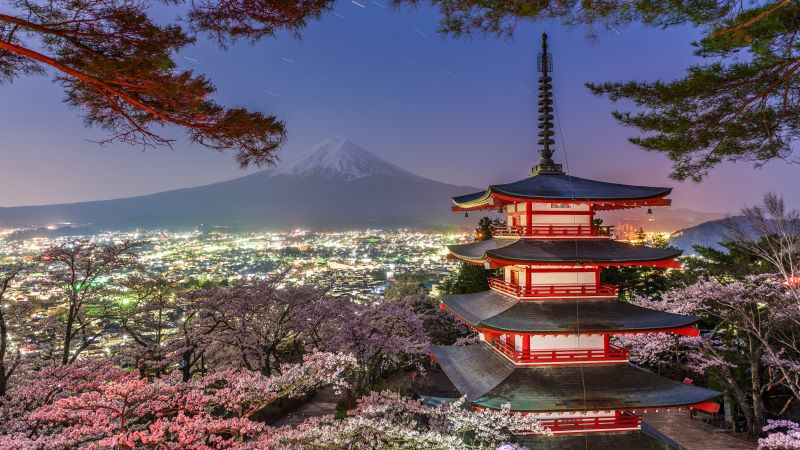Japan’s much anticipated reopening to international travellers has been underwhelming, both for tourists and its tourism industry. Sizeable caveats were introduced as the nation made the decision to welcome inbound travellers once again, likely resulting in prolonged recovery as many other global destinations start to reap the rewards of significantly loosening restrictions for international travellers.
Accessible, but to a point
The country is now accessible to international travellers. However, Japan currently only allows leisure tourists to visit in organised groups, rather than individually. When adding on the requirement of quarantine upon arrival and strict mask wearing rules, the perceived experience of visiting Japan may be underwhelming for leisure travellers.
The restrictions will noticeably subdue demand from long-haul markets, where visiting Japan will be classed as a once in a lifetime experience. For example, according to GlobalData, the US was in the top five inbound source markets for Japan in 2019 (the last year un-impacted by the pandemic), with 1.9 million visits. Hardly any US leisure travellers are going to travel to the nation in 2022 when their freedom of movement is restricted, and they must spend days cooped up in a hotel upon arrival.
These caveats for international travel have obviously impacted demand from short-haul markets as well. Between 10 June 2022 (the month marking Japan reopening to international travellers) and 10 July 2022, the country welcomed roughly 1,500 leisure tourists, according to Japan’s Immigration Services Agency. This figure marked a 95% decrease when compared to the same period in 2019.
Japan’s tourism recovery has still not begun
When comparing Japan to its G7 (an inter-governmental political forum consisting of Canada, France, Germany, Italy, Japan, the UK, and the United States) counterparts, it is one of the least accessible. Nations such as the UK have completely dropped requirements such as testing and quarantine for international travellers. This relaxation of Covid-19 related rules means that international arrivals to the UK are forecast to be at 74.2% of pre-pandemic levels in 2022, according to GlobalData.
See Also:
Strong recovery from the pandemic, because of increasing accessibility, has allowed many national tourism industries to recover and its companies to stay afloat. Japan’s reopening strategy looks set to maintain ongoing pain for its industry. Approximately one in ten hotels and travel agencies in Japan appear to have closed permanently over the past two years, a Nikkei survey found. According to GlobalData, total hotel revenue in Japan dropped by 67.8% in 2020 to just $15 billion. While similar levels of loss were experienced across the globe, Japan’s heavily caveated reopening strategy means its hotel sector’s timeline for regaining pre-pandemic levels of revenue will be lengthier.
How well do you really know your competitors?
Access the most comprehensive Company Profiles on the market, powered by GlobalData. Save hours of research. Gain competitive edge.

Thank you!
Your download email will arrive shortly
Not ready to buy yet? Download a free sample
We are confident about the unique quality of our Company Profiles. However, we want you to make the most beneficial decision for your business, so we offer a free sample that you can download by submitting the below form
By GlobalDataAlthough Japan will likely eventually relax its current rules regarding inbound visitation, meaningful tourism recovery will not start in the short-term with its caveats heavily impacting touristic experiences and itineraries stifling spontaneity. In the meantime, fans of Japan’s tourism product will choose alternative destinations instead, damaging repeat business and the nation’s competitiveness as a result.










Related Company Profiles
Nikkei Inc